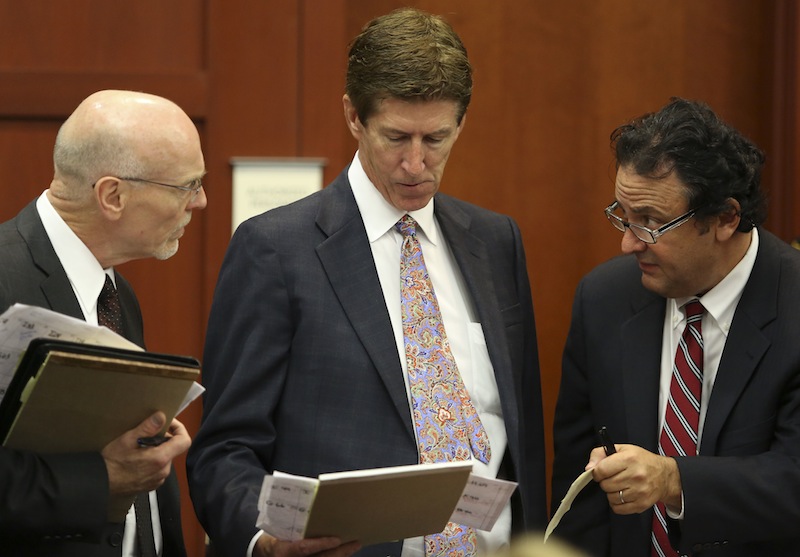ORLANDO, Fla. — When an all-female jury was selected in George Zimmerman’s second-degree murder trial, many court observers figured the panel’s unique composition posed an extra hurdle for the defense to overcome.
Female jurors can be emotional, sympathetic to victims and tough on accused gunmen — at least those are the stereotypes many court observers describe.
The Zimmerman defense argument — that he acted in self-defense when he shot and killed Trayvon Martin, an unarmed 17-year-old in February 2012 — would be “a tougher sell” to women, said veteran Orlando defense attorney Michael Snure.
“As a general rule, women don’t grow up getting into fistfights as kids or getting suspended from school for punching Johnny on the playground.” said Snure, who has never tried a case before an exclusively female jury in his three-decade career. “I thought it was bad news for the defense.”
But as it turned out, the experts misjudged the panel, which ultimately found Zimmerman not guilty of Martin’s death.
No one knows for sure how and why the panel reached its conclusion late Saturday, as none of the jurors has spoken publicly about it.
What is known, Snure said, “It was the best jury for the defense. They were pensive, careful and thoughtful.”
All-women juries are extremely uncommon. And a jury made up entirely of women in a racially charged, nationally watched second-degree murder trial is unheard of.
Even Circuit Judge Debra Nelson had to catch herself late Saturday from referring to the Zimmerman jurors as women and men.
As she turned to poll the jurors to verify their verdict, Nelson said, “Ladies and gentleman … I mean ladies, I’m sorry.”
Women were not even permitted to serve as jurors in Florida until 1949. That’s when the state Legislature, pushed hard by the League of Women Voters, gave women a choice: They could opt in to jury service by registering with their clerk of courts, said University of Iowa history professor Linda K. Kerber.
Jury consultant Susan Constantine of Maitland, Fla., who watched the selection process and other proceedings in the Zimmerman trial, said she was “very surprised” the defense would want a panel of women.
“As a jury consultant, that’s not who I had in mind,” she said.
Constantine said she would have chosen jurors who were more technical and were in professions such as engineering or accounting.
The Zimmerman jury’s six women — five of them white — ranged in age from 20s to 60s. Five of them have children, and their professions ranged from working in a chiropractor’s office, to a “safety officer,” to one who previously worked in her husband’s construction company.
Jenny Carroll, a former defense attorney and professor at Seton Hall University Law School in Newark, N.J. said it would be wrong to assume every female juror could be stereotyped.
One theory might be that women tend to be sympathetic jurors. But that could also mean they would be more sympathetic to self-defense claims, she said. Some experts speculate women can be harder on suspects who use guns, Carroll said, but she also noted some women are pro-gun.
One of the jurors in Zimmerman’s case, “B-37,” used to have a concealed-weapons permit but let it lapse. Her husband, a lawyer, also has a permit. On Monday, a book agent confirmed that “B-37” plans to write a book about the high-profile trial.
Court experts such as Kerber discount views that women jurors tend to be more emotional in their decision making.
“Those opinions are folklore,” she said, adding that similar reasoning was used for decades to prevent and discourage women from participating as jurors.
Stereotypes or not, jurors are told to leave emotions out of their decision making.
“These jurors are asked by the judge and asked by the attorneys in their closings to set aside any of those biases and sympathies and think about the facts of the case,” Carroll said.
Send questions/comments to the editors.


